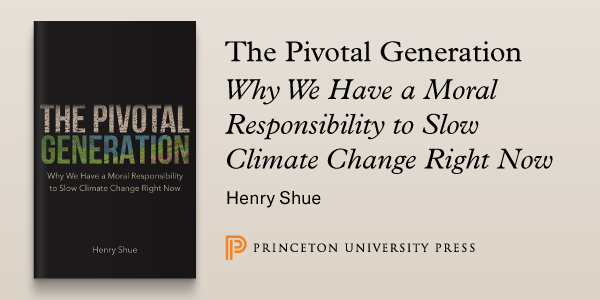Mini-Heap
Possibly the last Mini-Heap of 2021…

- “Thinking about dogs without us can help us understand who dogs are with us, and what they need from us, right now, to flourish and be happy” — bioethicist Jessica Pierce (Colorado) on what we can learn from speculating about “posthuman dogs”
- The picture of the “the offline” as where we go to find ourselves means “we are condemned to either living falsely, or being alone” — but, asks Lauren Collee (Goldsmiths), what exactly is “the offline”, what does it represent, and who is it for?
- Publication strategies for those on the tenure track at a liberal arts college with fairly demanding research standards — from Erich Hatala Matthes (Wellesley)
- A New York Times columnist tries out Stoicism for the holidays — “the Stoics have led me to the major philosophical insight that while I can’t control someone else’s construction site, it is within my power to purchase earplugs and then watch a detailed YouTube tutorial about how to ‘Stop Inserting Earplugs Wrong!'” says Molly Young
- A brief historical survey of philosophers on “enjoying food, drink, sex, dancing, and idleness, without guilt” — Max Hayward (Sheffield) in The Atlantic
- “The [students’] papers often seem to be written in the same way that someone who, never having seen a plane, tries to draw one based on its definition” — Robert Zaretsky (Houston) on professors who love books and students who do not read them
- “What is unique and liberating about philosophy is that you are allowed to defend any idea, no matter how crazy it might sound, as long as you have an argument that you are willing to subject to scrutiny” — an in-depth interview with Yujin Nagasawa (Birmingham) at What Is It Like To Be A Philosopher?
Mini-Heap posts usually appear when 7 or so new items accumulate in the Heap of Links, a collection of items from around the web that may be of interest to philosophers. Discussion welcome.
The Heap of Links consists partly of suggestions from readers; if you find something online that you think would be of interest to the philosophical community, please send it in for consideration for the Heap. Thanks!



Re: Max Hayward’s article in The Atlantic:
It is quite true that Kant thought little of “feasts and grand banquets,” for the events he had in mind tend be “festive entertainments” that amount to little more than boasts by the one throwing them and stupefacients for the ones attending them (Anth. 7: 278).
To such spiritually empty distractions, however, he explicitly opposed “the good living that still seems to harmonize best with true humanity,” namely, “a good meal in good company” (ibid.), complete with some wine or beer, which “open the heart” and stimulate “reciprocal communication of thoughts” (ibid., 7: 170-1).
Yes, Kant said some risible things about dinner parties (and, of course, about other things). And, yes, he probably moralized aspects of life that shouldn’t be moralized.
But you and I have each partaken in something like a “festive entertainment” and each partaken in something like “a good meal in good company.” And we’ve probably enjoyed the stupefaction brought by the former. (I know I have.) But you’re a liar, a dullard, or a boor if you deny the nourishment brought by the latter. Its peculiar and characteristically human union of physiological and spiritual sustenance is just what Kant thought so lovely and worthwhile.
My point is this: Kant was a human being, for fuck’s sake.
He committed some grave errors in judgment, as human beings do. But more to the point — and this shouldn’t have to be said — he was perfectly aware of human vulnerabilities, needs, desires, and pleasures. He might have interpreted some of them idiosyncratically, maybe incorrectly. But only one with a pre-formed caricature in mind could think it’s at all faithful to Kant’s philosophy to present him as coming down against enjoying each other’s company over some food and drink.
The caricature of Kant as nothing more than a “dour moralist,” as Hayward puts it, discourages one from looking for the very human phenomena that Kant was trying to characterize and prevents one from finding anything reasonably human in what he says about them.
Unfortunately, writing with the caricature in mind only works to promulgate the caricature, so some other dilettante can come to misinterpret Kant and promulgate the caricature — which happens not only in too many popularizations of Kant but in too many journal articles as well.